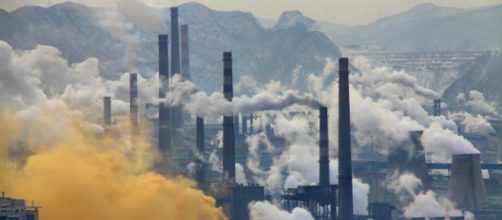The world waits for President Trump's decision on the Paris Agreement to unfold Thursday. It doesn't wait, however, for immediate and decisive action on climate change. Chinese Premier Li Keqiang did not direct his comments directly at Trump, but his words weren't subtle, seeming to indicate that he was addressing the White House. He referenced the fact that, previously, Trump called climate change a "hoax perpetrated by china."
China and EU taking initiative
China has been a world power aiming to take control of their own climate change problems since 2012 after years of shying away from the issue.
In 2013, its coal use peaked, and it subsequently became the world's biggest solar energy market. Now, with its resolve to partner with the European Union -- a partnership never before seen -- China is poised to replace the U.S. as the world's leading opponent against climate change. While the EU's compliance with the Paris Agreement is of little surprise, China's initiative may be turning more heads.
Wang Hui of Beijing's University of International Relations said of President Trump's potential withdrawal from the agreement, "It has certainly given us an opportunity, especially on climate and trade issues. Trump is a businessman who emphasizes America’s own interests rather than common interests.
China and Europe must now step up and assume our international responsibilities together.”
Also weighing in on the fight is Indian Prime Minister Narendra Modi, who, following talks in Spain, said it would be a “crime” to destroy the environment for future generations.
The agreement
Led in part by former President Obama, the Paris Agreement was crafted to make climate change a "top priority." Both the U.S. and China were among the first countries to ratify the Paris Agreement, which aims to legitimize the issue of climate change as a real and imminent threat, as well as to curtail greenhouse gas emissions worldwide.
The agreement also pledges to keep global temperatures from rising more than a manageable 2 degrees C (3.6 degrees F) above pre-industrial measures by 2100.
However, the pact is voluntary, not requiring countries to monitor their emissions or to be held accountable if they fall short in reducing their impact on greenhouse gas emissions. If President Trump withdraws the United States from the agreement, as he is expected to do this week as he affirmed at the G7 summit, the U.S. will join only two other two countries to do so, Nicaragua and Syria.
A global consensus
In a meeting with senior European Union officials in Brussels, Premier Li said, "Fighting climate change is a global consensus, it's not invented by China...and we realise that this is a global consensus agreement and that as a big developing nation we should shoulder our international responsibility."
As activists like Bill Nye have pointed out numerous times in several different capacities, there is a near-total scientific consensus (approximately 97%) that climate change is real, man-made, and a global threat.
There are few (if any) legitimate, peer-reviewed studies that deny or downplay the problem. While just over a majority (about 51%) of Americans believe climate change poses a real threat, over 70% of Chinese citizens hold the same view. Perhaps it isn't so surprising after all that China is seemingly filling the void left by the U.S. and its lack of initiative on the issue. We can only hold our collective breath at the moment.


